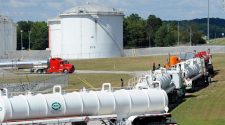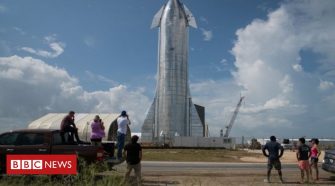The United Nations Intergovernmental Panel on Climate Change on Monday released the third and final section of its comprehensive review of the ongoing climate emergency and, compared to the two foreboding assessments that preceded it, the final section is positively rosy. Optimistic, even.
The 278 scientists from 65 countries who helped write the report conclude that while the world is a hair’s breadth away from the tipping point on global warming, there is greater understanding of the situation’s urgency and, importantly, known technology and strategies that can deliver the sweeping reduction of emissions needed to prevent catastrophe.
The question is, will we act in time?
The IPCC, a working group of 195 member governments about to complete its latest seven-year review of climate science, has warned through its intermittent reports about the perils of average temperatures growing warmer than 1.5 degrees Celsius above pre-Industrial Age levels.
Warming at that level, or beyond, will result in sweeping changes to our planet’s resilient but delicate ecosystem, with profound implications for human, animal and plant life. Droughts and flooding will be more frequent and severe, populations will be forced to migrate, food production will be more challenging, and much more.
We’re already seeing some of these effects in Hampton Roads — among them are more invasive and common flooding, even on sunny days; unpredictable and frequent extreme weather events; and complications for area farming due to unpredictable growing conditions.
While advocates for climate action have sounded this alarm for years, the IPCC report suggests that is making a difference. Governments around the world are responding to public demands through policies that reduce fossil fuel consumption, speed the transition to renewable energy, emphasize efficiency and protect valuable habitats.
The IPCC concludes that progress in recent years has provided the options needed to halve emissions by 2030 — the type of dramatic and rapid action needed to avoid warming well beyond 1.5 degrees.
The plummeting cost of solar and wind technology, improved battery storage capacity, innovative efficiency measures and other existing technology allow the sort of comprehensive mitigation needed to stave off disaster.
Understand, things will almost certainly be bad — a recent National Oceanic and Atmospheric Administration report predicted Hampton Roads could see 1 foot of sea-level rise by 2050, the same increase recorded over the last century — but these strategies could keep us from crossing a point of no return.
But will we work together, as a global community, to keep warming in check? Will we show the determination and commitment to make tough choices, change the way we do things, and protect our habitat from growing more hostile and deadly?
Recent evidence — globally, nationally, and locally — seems to suggest that’s a tall order.
Washington, perpetually mired in gridlock and beholden to fossil fuel, balked at adopting even basic steps, such as efficiency improvements, and high gas prices has some calling for more oil and gas production rather than a transition to renewables that would benefit people and the planet.
And in Virginia, Gov. Glenn Youngkin showed his hand before taking office, saying during the campaign that he didn’t know if humans caused warming (they most certainly do) and trying to appoint former coal lobbyist Andrew Wheeler to the commonwealth’s most important environmental post.
Youngkin wants to pull Virginia out of the Regional Greenhouse Gas Initiative, a market-based carbon reduction program that has generated hundreds of millions for flood mitigation and low-income energy programs. And he has been assisted in those efforts by Attorney General Jason Miyares, who has shown an insatiable appetite for joining lawsuits that harm the environment.
The IPCC report emphasizes that good choices, made right now, are the best hope the planet has. What will it say of us if we have all the tools needed to reduce emissions, limit global warming and ensure the protection of the planet, but fail to use them? What will we tell our children and grandchildren when they ask why we stood by when it mattered most?

















